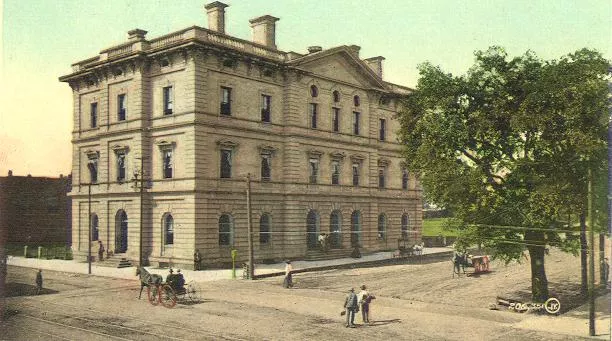1737 Main Street
With funding appropriated by President Ulysses S. Grant's administration, construction of Columbia's United States Court House and Post Office began in 1870. At that time, the expansion of the federal court system as a means of safeguarding freedmen's civil rights was proving crucial to Reconstruction policies. The court's biggest test took place during the nationally publicized Ku Klux Klan trials of 1870-1871, which sought to suppress white supremacist violence in the upcountry through legal means. The post office was also a political institution, as federal patronage positions were important to party building. In 1869, shortly after Ulysses S. Grant's inauguration as president, he named Charles M. Wilder the postmaster in Columbia, one of the first African Americans in the country to hold that strategic position.
The federal government eventually spent more than $400,000 (at least $15 million today)on the Renaissance Revival style building, which was designed by Federal Supervising Architect Alfred B. Mullet (1834-1890). The project provided jobs for skilled artisans who shared the fervor for the dignity of labor that had inspired Republican antislavery ideology. Stone-cutters at the work site went on strike in April 1872 to demand an eight-hour work day, the leading labor demand of the postwar era. They obtained President Grant's support and won their strike. The project came to an emotional conclusion on July 3, 1875, when the crew stayed overtime to raise the eagle-tipped flagstaff. The United States flag began to fly permanently over the former cradle of secession on Independence Day.
When the post office relocated in 1921, the federal judiciary expanded into the vacated space. But by the late 1920s it had outgrown the building, and a new courthouse was planned for this site. Finding value in the decades-old building, Mayor L. B. Owens and Columbia City Council negotiated a swap with the federal government. In exchange for this building, the federal government would receive the city-owned land at the corner of Assembly and Laurel streets for the construction of its new courthouse, a building that today serves as the bankruptcy courthouse. Since 1932, Columbians have known this building as their City Hall.
